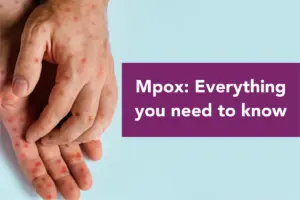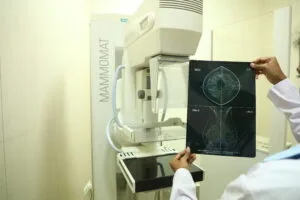Antibody Testing in Covid-19 Infection

As a result of extensive studies conducted thus far in the COVID-19 pandemic, three major modalities of diagnosis of patients have emerged – a gold standard test for direct detection of the virus (NAAT), an antigen test for quick diagnosis and antibody tests for use later in the infection to establish seroconversion and subsequent immunity.
ICMR has recently given a green light to diagnostic labs and healthcare organizations in the country to conduct antibody testing for COVID-19, but for the purpose of sero-surveillance only. In this situation, it behoves us all to be aware of the nuances of antibodies in SARS-CoV-2 infection.
Seroconversion in COVID-19
Seroconversion i.e. the production of antibodies in response to an infection occurs in almost all immune competent individuals infected with the SARS-CoV-2 virus. Like any other viral infection, the SARS-CoV-2 virus also elicits development of IgM and IgG antibodies.(1)
The timelines of these antibodies is seen to be highly variable in individuals.(1) Antibodies most commonly become detectable 1-3 weeks after symptom onset, but also has been seen as early as 5 days in some cases.(2–5)
Normally in other infections, IgM antibody appears first and then declines within a few weeks; so detection of IgM is usually indicative of an acute infection. IgG antibody formation follows (usually within a week or more) and then the antibody persists in circulation for an extended period of time. So detection of IgG is usually indicative of a past infection and possible immunity.
However, in COVID-19, this traditional paradigm does not seem to apply in all cases. Because of the highly variable time of appearance of IgM and IgG in COVID-19 infection, the detection of IgM does not necessarily indicate an acute infection. SARS CoV-2 infection is somewhat unusual in that IgM and IgG antibodies appear nearly simultaneously in serum in some cases .(1) Studies have also shown that in COVID-19, seroconversion for IgG can occur BEFORE IgM or at the SAME TIME as IgM.(2,3)
So, the most sensitive and earliest serological marker is total antibodies, rather any one antibody subtype.(6)
Do these antibodies offer protection against future infection?
High titres of SARS CoV-2 IgG antibodies detected by ELISA have been shown to positively correlate with virus neutralizing potency of the antibodies.(6) In addition, recurrence of COVID-19 illness appears to be very uncommon in patients with Covid-19 antibodies, suggesting that the presence of antibodies could potentially confer at least short-term immunity to infection with SARS-CoV-2.(1)
Animal experiments on primates which were exposed to the virus and subsequently developed antibodies, showed that these antibodies prevented re-infection when the same primates were re-exposed to the virus.(1)
Antibody development in humans also correlates with a marked decrease in viral load in the respiratory tract. All this suggests that the presence of antibodies may decrease a person’s susceptibility to the infection and offer some degree of protection when exposed to the virus in future.
However, the data required to make definitive conclusion in this regard is still lacking, and it remains uncertain whether individuals with antibodies are protected against reinfection with SARS-CoV-2, and if so, for how long and what concentration of antibodies is needed to confer protection.(1)
Antibody Titres and disease severity
With respect to antibody titres and disease severity, some (but not all studies) have shown that the antibody titre directly correlates with the severity of the disease; i.e. critically ill hospitalized patients have been reported to exhibit significantly higher antibody titre values than non-critical patients.(3,7) In the previous SARS and MERS epidemics, later studies showed a similar correlation between antibody titre and disease severity.(8,9)
Absence of antibody response in RT-PCR positive Covid-19 cases has been observed. This can happen in very old patients, in immune-compromised patients, in malignancy, in pregnancy, and in those on immune-suppressant therapy..
What are Antigenic Targets against which we test for Antibodies?
The two major antigenic targets of SARS-CoV-2 virus against which antibodies are detected and for which serological tests have been devised are spike glycoprotein (S) and nucleocapsid phosphoprotein (N). While S protein is essential for virus entry and is present on the viral surface, N protein is the most abundantly expressed immunodominant protein that interacts with RNA. Multiple forms of S protein — full-length (S1+S2) or partial (S1 domain or receptor binding domain [RBD]) — are used as antigens.(1)
Typically, the majority of antibodies are produced against the most abundant protein – the N protein. Therefore, tests that detect antibodies to N would be the most sensitive. However, the receptor-binding domain of S (RBD-S) protein is the host attachment protein, and antibodies to RBD-S would be more specific and are expected to be neutralizing. Therefore, using one or both antigens for detecting antibodies would result in high sensitivity. Antibodies may, however, have cross-reactivity with SARS-CoV and possibly other coronaviruses.(6)
Uses of an Antibody Test
Antibody testing in COVID-19 can be used for the following:
Sero-surveillance: ICMR has mandated that the antibody tests be used only for sero-surveillance in India and not for diagnosis.(10) A recent systematic review and meta-analysis revealed that antibody tests have limited utility in the diagnosis of acute COVID-19 and posited that of those tested for COVID-19 within one week of symptom onset, on average 44% to 87% will be falsely identified as not having infection.(11)
However, it can be used to SUPPORT a diagnosis of COVID-19 infection in persons with high suspicion index, who present late and in whom RT PCR was either not performed or was negative due to technical reasons. For persons who present 9-14 days after illness onset, serologic testing can be offered in addition to the recommended RT-PCR. This will maximize sensitivity as the sensitivity of nucleic acid detection is decreasing and serologic testing is increasing during this time period. This is also useful when patients present with late complications of COVID-19 illness, such as multisystem inflammatory syndrome in children.(1)
To select patients who have detectable antibodies, so that their plasma can be used for treating active COVID-19 cases – convalescent plasma therapy.
Once a vaccine is developed, antibody testing can be used to verify the response to the vaccine.
Serologic testing should not be used to determine immune status in individuals until the presence, durability, and duration of immunity is established.(1) The only conclusion we can safely make, when antibodies are detected in the patient’s blood, is that the patient has/had a COVID-19 infection in the recent past.
References
- CDC. Interim Guidelines for COVID-19 Antibody Testing [Internet]. Centers for Disease Control and Prevention. 2020 [cited 2020 Jun 29]. Available from: https://www.cdc.gov/coronavirus/2019-ncov/lab/resources/antibody-tests-guidelines.html
- To KK-W, Tsang OT-Y, Leung W-S, Tam AR, Wu T-C, Lung DC, et al. Temporal profiles of viral load in posterior oropharyngeal saliva samples and serum antibody responses during infection by SARS-CoV-2: an observational cohort study. Lancet Infect Dis. 2020 May;20(5):565–74.
- Long Q-X, Liu B-Z, Deng H-J, Wu G-C, Deng K, Chen Y-K, et al. Antibody responses to SARS-CoV-2 in patients with COVID-19. Nat Med. 2020 Jun;26(6):845–8.
- Jin Y, Wang M, Zuo Z, Fan C, Ye F, Cai Z, et al. Diagnostic value and dynamic variance of serum antibody in coronavirus disease 2019. Int J Infect Dis. 2020 May;94:49–52.
- Tan W, Lu Y, Zhang J, Wang J, Dan Y, Tan Z, et al. Viral Kinetics and Antibody Responses in Patients with COVID-19 [Internet]. Infectious Diseases (except HIV/AIDS); 2020 Mar [cited 2020 Jun 29]. Available from: http://medrxiv.org/lookup/doi/10.1101/2020.03.24.20042382
- Sethuraman N, Jeremiah SS, Ryo A. Interpreting Diagnostic Tests for SARS-CoV-2. JAMA. 2020 Jun 9;323(22):2249.
- Zhao J, Yuan Q, Wang H, Liu W, Liao X, Su Y, et al. Antibody responses to SARS-CoV-2 in patients of novel coronavirus disease 2019. Clin Infect Dis. 2020 Mar 28;ciaa344.
- Choe PG, Perera RAPM, Park WB, Song K-H, Bang JH, Kim ES, et al. MERS-CoV Antibody Responses 1 Year after Symptom Onset, South Korea, 2015. Emerg Infect Dis. 2017 Jul;23(7):1079–84.
- Okba NMA, Raj VS, Widjaja I, GeurtsvanKessel CH, de Bruin E, Chandler FD, et al. Sensitive and Specific Detection of Low-Level Antibody Responses in Mild Middle East Respiratory Syndrome Coronavirus Infections. Emerg Infect Dis. 2019 Oct;25(10):1868–77.
- ICMR. Newer Additional Strategies for COVID-19 Testing [Internet]. 2020 [cited 2020 Jun 28]. Available from: https://www.icmr.gov.in/cteststrat.html
- Lisboa Bastos M, Tavaziva G, Abidi S, Campbell J, Haraoui L, Johnston J et al. Diagnostic accuracy of serological tests for covid-19: systematic review and meta-analysis. BMJ. 2020;:m2516.



